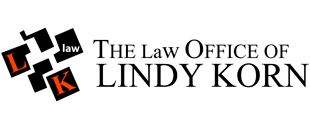Article appeared in The Daily Record
A federal judge has reduced a $1 million punitive damages award to $50,000 following a jury trial in which a black former employee of Memorial Sloan Kettering Hospital proved that management retaliated against him for complaining about racial discrimination in the workplace, Chisholm v. Memorial Sloan Kettering Cancer Center, 2011 U.S. Dist. LEXIS 130089, SDNY, Nov. 3.
Chisholm convinced a jury that a supervisor, Adamec, punished him for speaking out about workplace discrimination. This led to Chisholm’s termination. The jury awarded Chisholm more than $230,000 in back pay and authorized the judge to award him front pay, or future lost income. The jury also awarded plaintiff a million dollars in punitives under the New York City Human Rights Law. That million dollars has been remitted to $50,000.
The judge awarded $102,000 in front pay through 2014. Chisholm wanted front pay through 2020, when he turns 65. But the court said that awarding front pay for the next nine years would be speculative and that Chisholm probably would have been fired long before then because of performance deficiencies. The judge said:
“While the Court does not contest the jury’s finding that the April 2007 log-sheet incident was not the true reason for Chisholm’s termination, Chisholm’s behavior in connection with that incident is nonetheless relevant evidence of inappropriate workplace demeanor. That Chisholm had retained transportation department documents in his locked desk drawer was troubling and Defendants could justifiably regard as increasingly erratic behavior. Under these circumstances, the Court concludes that it is unlikely Chisholm would have remained an employee by Sloan-Kettering through 2020.
Although the jury said the log-sheet incident was not the real reason for plaintiff’s termination (and that the real reason was retaliation), the court used the incident as a means to limit Chisholm’s front-pay award. It seems speculative to this writer, that a judge can predict future behavior, based on pretext, to limit front pay awards.
On punitive damages, the jury awarded them because of Adamec’s reprehensible behavior. The jury was also told that the hospital would pay out the award under the NYCHRL. The court said the award shocks the judicial conscience. Even though the hospital pays the award, the court cited cases holding that a punitive damages award cannot “be so high as to result in the financial ruin of the defendant.”
Of course, this award would not ruin the hospital, but it would certainly ruin Adamec were he to pay the award — which he doesn’t. While Chisholm’s lawyers argued that this large award would deter an institution such as Sloan Kettering from doing this again, the district court rejected this argument as lacking in any case law. The court concluded, “while Adamec’s conduct was certainly reprehensible, as the jury found, it did not involve violence or the treat of violence. Nor did it involve racial slurs or other offensive language. Moreover, an award of $50,000 represents a significant financial hardship to an individual defendant.”
Since the concept of vicarious liability applies under the NYCHRL, the concept of holding an employer liable for retaliatory acts of supervisors as happened here, goes to the heart of preventing retaliation through dissuasion. The degree of reprehensible action included retaliation acted out by a supervisor, and goes to the heart of any affirmative defense in employment law.
Chisholm now has the choice of accepting the court’s award of $50,000 for punitive damages or the court will order a new trial on the issue. Stay tuned!



